| | Ukraine’s leader hopes for an Oval Office green light, India disputes a Trump assertion, and flaming͏ ͏ ͏ ͏ ͏ ͏ |
| |  | Flagship |  |
| |
|
The World Today | 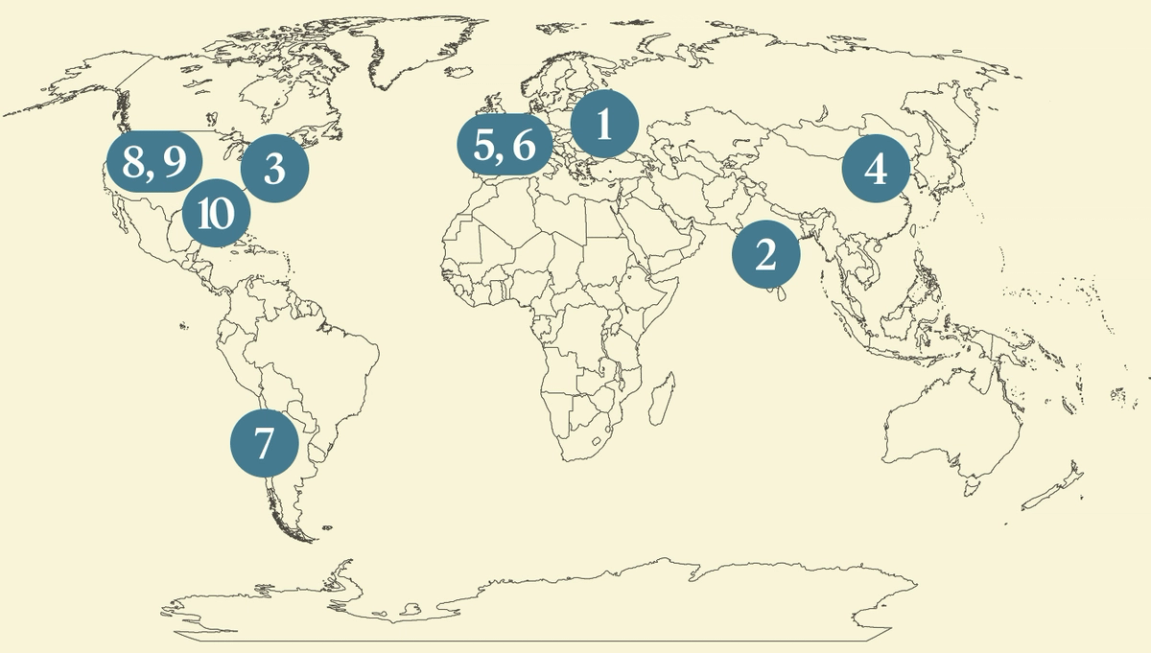 - Zelenskyy hopes for missiles
- India disputes Trump on oil
- US prosecutors indict Bolton
- Microsoft pivots from China
- French PM survives, for now
- Spain courts migrants
- Latam’s rightward shift
- Whooping cough surges in US
- More elderly dying alone
- Flamingos return to Florida
 The decline of British social housing, and a ‘powerfully evocative’ debut novel. |
|
Zelenskyy hopes for Trump green light |
 Al Drago/File Photo/Reuters Al Drago/File Photo/ReutersUkrainian President Volodymyr Zelenskyy hopes Oval Office talks with US President Donald Trump today will result in approval for the transfer of long-range missiles, a top aide said. Washington has appeared to grow more amenable to resuming military backing for Kyiv’s push to repel Russia’s invasion. Those hopes have likely been undermined, however, by Trump’s announcement that he will hold talks with his Russian counterpart Vladimir Putin. “On multiple occasions this year,” The New York Times wrote, “Mr. Trump has come right to the edge of imposing penalties on Russia or giving powerful new military aid to Ukraine, only to speak with Mr. Putin and raise hopes for a diplomatic solution — so far with little to show for it.” |
|
US-India dispute on Russian oil |
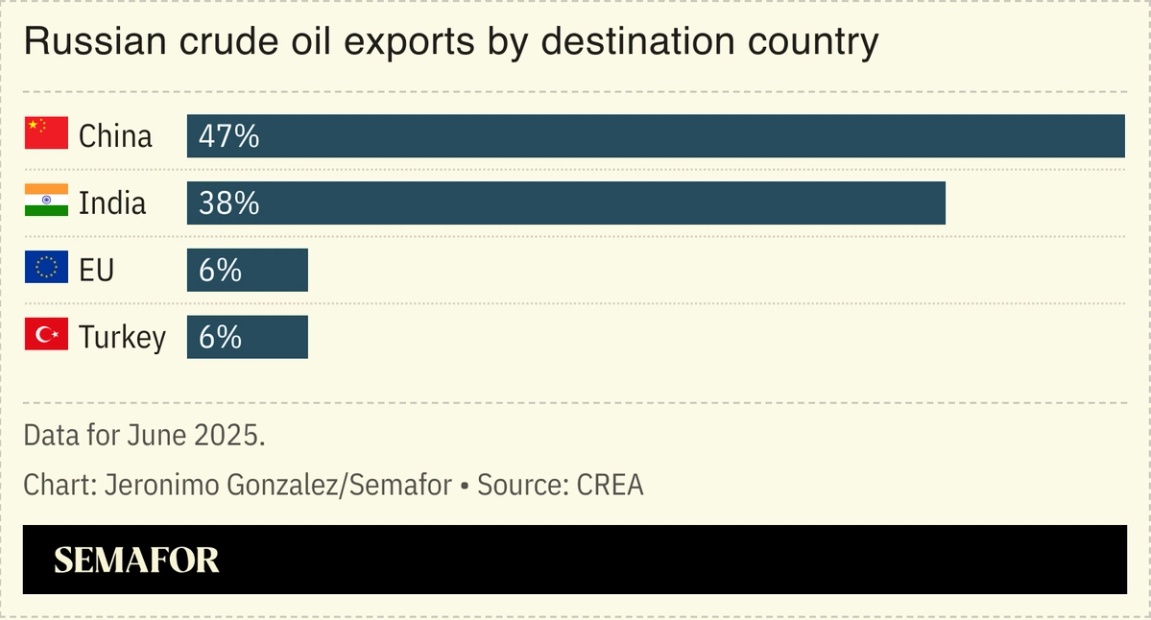 US President Donald Trump said Indian Prime Minister Narendra Modi had pledged to stop buying oil from Russia, but New Delhi said the two leaders haven’t communicated in recent days. The confusing back-and-forth — reminiscent of an episode earlier this year in which Trump said he spoke to Chinese leader Xi Jinping, an assertion denied by Beijing — underlined persistent tensions between the US and India. Their ties have been upended by Trump’s frustration with Indian purchases of oil from Russia, which Washington argues is helping Moscow fuel its war with Ukraine. “Once again, Donald Trump has made a claim that may not square with facts,” a leading Indian journalist said. Still, “New Delhi has little option but to tread with caution.” |
|
US prosecutors indict John Bolton |
 Former National Security Advisor John Bolton. Brian Snyder/File Photo/Reuters. Former National Security Advisor John Bolton. Brian Snyder/File Photo/Reuters.US prosecutors indicted a former national security adviser for allegedly mishandling classified information, the latest critic of President Donald Trump to face legal pressure. The charges against John Bolton — who served in Trump’s first term but has turned against the president — related to his purported sharing of documents with relatives, allegations he denied. They come following prosecutions of two other Trump opponents, the New York attorney general and a former FBI director. Yet while the legal campaign “has no parallel in decades of American politics,” as CNN put it, the Bolton charges are less surprising: Trump did not openly call for them, they were brought by long-serving officials, and a judge previously warned that Bolton may have broken the law. |
|
 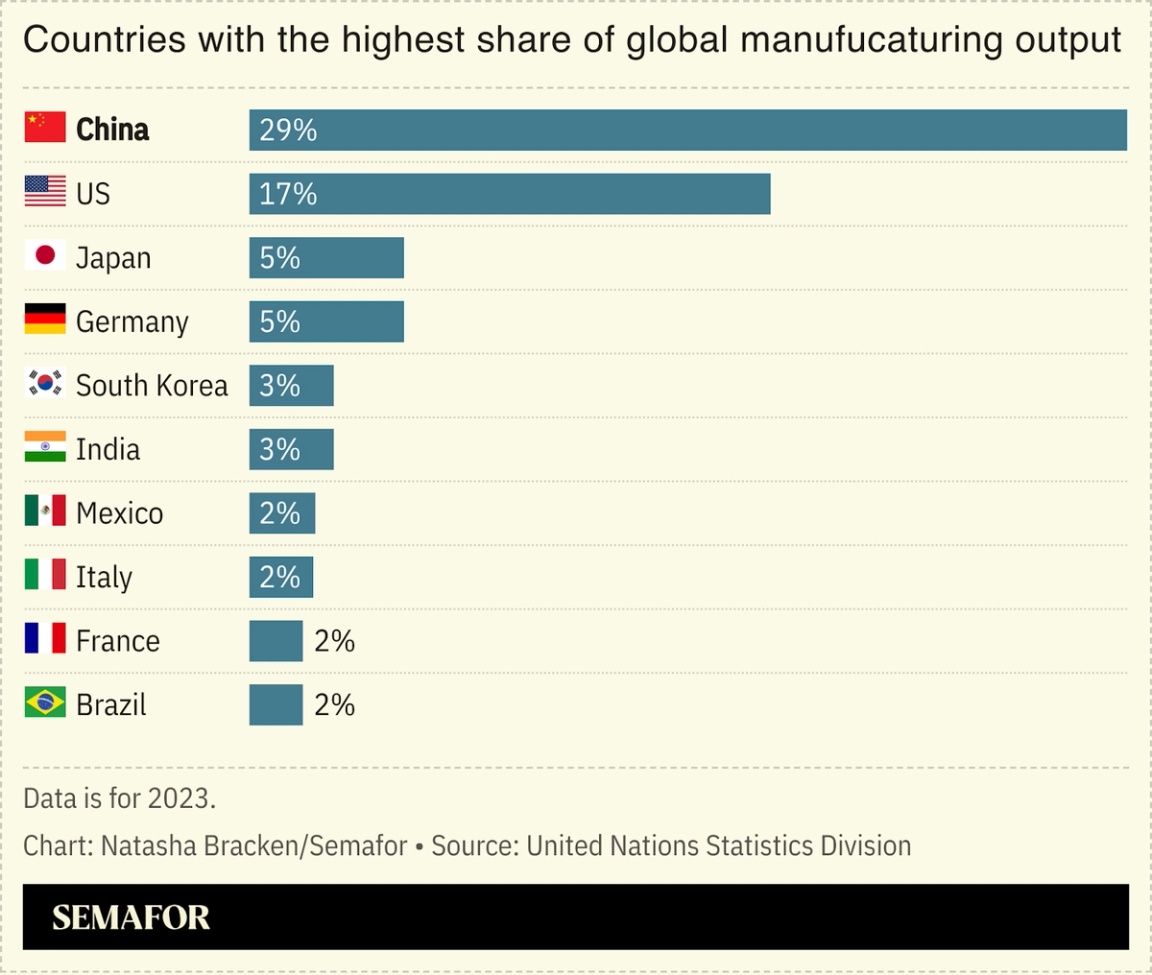 Microsoft reportedly wants to pivot the majority of its hardware manufacturing outside of China next year, a sign of the growing fracture between the Western and Chinese technology sectors. It is not alone among American Big Tech firms: Nikkei also said AWS is moving server production outside of China, while Google is trying to grow server-making capabilities in Thailand. The US-China AI race has served as a driver for major American tech companies to shift manufacturing, fearful of their production being curtailed by restrictions from either Washington or Beijing. Other powers, meanwhile, are resigning themselves to falling behind: Europe will be “No. 3 at best” when it comes to AI, Belgium’s central bank governor admitted at Semafor’s World Economy Summit. |
|
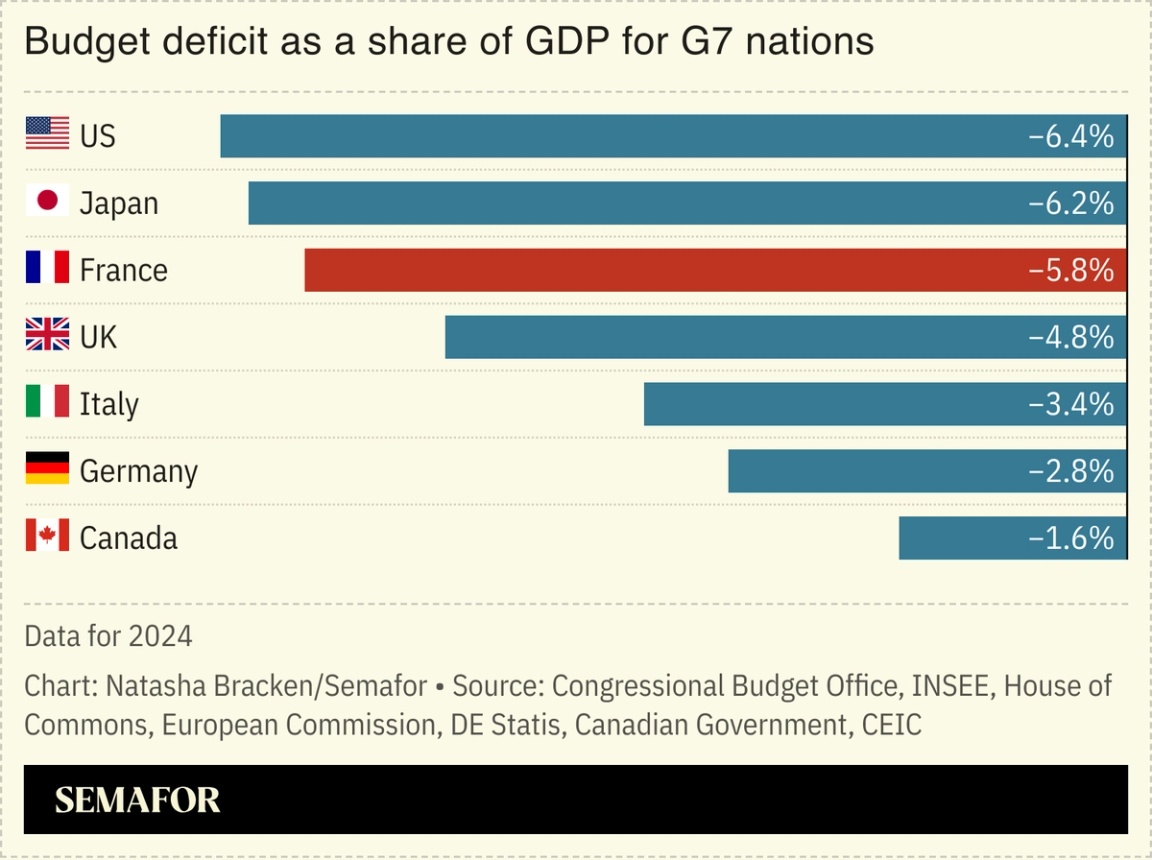 French Prime Minister Sébastien Lecornu survived two no-confidence votes, but the budget battle that has driven his country to political crisis looked little closer to resolution. Motions by the far-left and far-right both failed, averting the possibility of snap parliamentary elections. “The immediate danger may have receded, but the core problem is still very much center stage,” the Associated Press said: Lecornu’s minority government must navigate fraught politics for any legislation, including the passage of a budget that has torpedoed successive governments for over a year. The impasse has driven French bond yields higher, and threatens to hit the country’s economy, with many of its neighbors watching nervously. “The dilemma France faces isn’t unique,” an ING economist warned. |
|
 Spain’s Prime Minister Pedro Sánchez. Juan Medina/File Photo/Reuters. Spain’s Prime Minister Pedro Sánchez. Juan Medina/File Photo/Reuters.A Spanish government-sponsored event this week showcased how its center-left government is bucking a Western trend of cracking down on foreign arrivals and cutting international aid. The AfroMadrid2025 conference was the latest in a series of efforts by the country to deepen its ties with African nations: Madrid has widened a seasonal migration program, is aiming to open a raft of new embassies across the continent, and wants to expand business and education ties. The push is not limited solely to Africa: In part to address an aging population, Spain has aggressively expanded migration more broadly, with the number of Latin Americans now calling Madrid home having grown more than tenfold over the last quarter-century to more than a million. |
|
Latam’s reversing ‘pink tide’ |
 Brazil’s President Luiz Inacio Lula da Silva (l) and Chile’s President Gabriel Boric (r). Pablo Sanhueza/Reuters. Brazil’s President Luiz Inacio Lula da Silva (l) and Chile’s President Gabriel Boric (r). Pablo Sanhueza/Reuters.South America looks set for a rightward shift in upcoming elections, reversing the course of a leftist “pink tide” that swept the region in recent years. Conservative candidates are topping polls in Brazil, Chile, and Colombia, with all due to hold elections soon. The three countries have been mired by worsening inequality, rising criminality, and allegations of corruption, while pressure from the Trump administration has worsened economic growth prospects. Among those whose successors face dim prospects is Chilean President Gabriel Boric, who has warned of a democratic recession in the region: “When democracy is not able to deliver… it withdraws,” he told The Washington Post. |
|
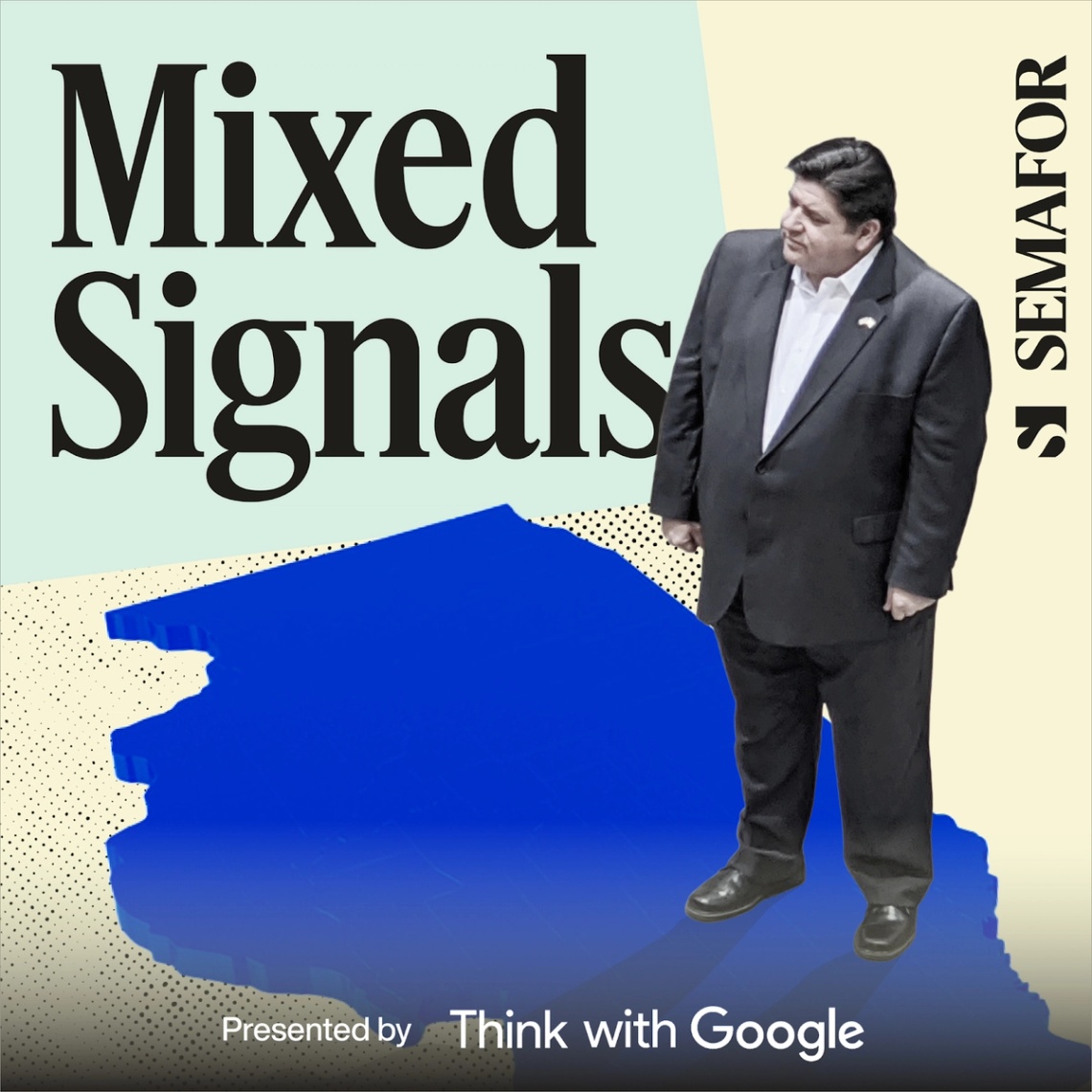 Chicago is either a war zone quickly spiraling out of control, or a peaceful city under siege by an overreaching federal government. It all depends on who you ask — and which channel you watch. This week, Ben and Max bring on Illinois Gov. JB Pritzker to talk about how he’s fighting a messaging battle against the Trump White House. They also talk about how conservative media is shaping the situation on the ground, what he thinks of California Gov. Gavin Newsom’s trolling approach to Trump, and whether we should bet on the Chicago Bears. |
|
Whooping cough surges in Florida |
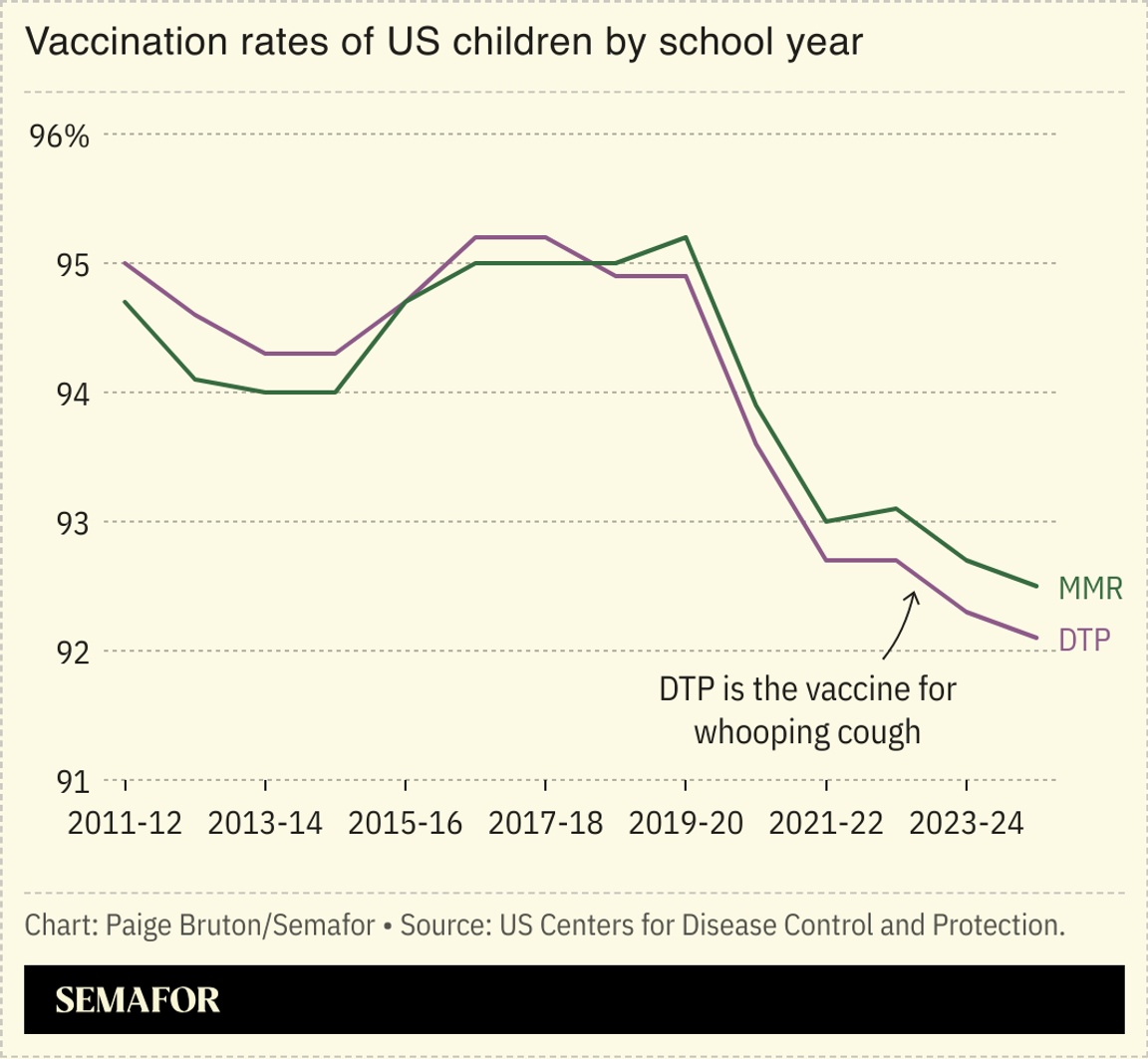 Whooping cough diagnoses in the US state of Florida rose 81% from 2024 to 2025, driven by a collapse in immunization. Kindergarten vaccination rates fell in 2024 to the lowest in over a decade, The Tallahassee Democrat reported, and below what is needed for herd immunity. Vaccine skepticism is up in much of the US, with a sharp partisan divide: Republican voters, led by the party leadership, have become much less willing to vaccinate their children, while Democrats have become slightly more pro-vaccine. The result is that some previously well-controlled diseases have returned: There have been more than 1,500 measles cases nationwide and three deaths. Scientists warned that the virus could become endemic again within 20 years. |
|
Demographics drive loneliness |
|
|